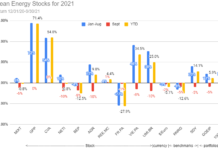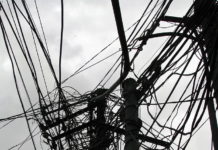Doug Young
China is quickly learning how to play the game of tit-for-tat trade wars, with news that Beijing has launched a new anti-dumping probe against wines imported from the European Union. Anyone who has followed recent China-EU trade relations will know, of course, that announcement of this new probe by the Commerce Ministry comes the same day that the EU formally announced anti-dumping tariffs against imported Chinese solar panels.
While I certainly don’t condone this kind of trade war rhetoric, I have to say that China’s decision to target Europe’s wine industry looks like a very smart selection for this kind of probe. For starters, wine is one of Europe’s most famous products and is one of its biggest exports. At the same time, Chinese consumers are quickly discovering a fondness for imported wines, with European varieties fetching some of the highest prices.
All that said, let’s have a look at the actual news that saw the EU formally impose an 11.8 percent anti-dumping tariff on Chinese solar cells to take effect on Thursday. (English article) The tariffs were widely anticipated following a months-long investigation, and were actually quite a bit lower than most people had expected. But the rate could rise to 47.6 percent in August if China and the EU don’t reach a negotiated settlement in the matter before then.
Chinese solar panel makers were predictably dismayed, with Trina (NYSE: TSL) issuing a statement expressing its disappointment. (company statement) Yingli (NYSE: YGE) said it hopes the 2 sides will be able to negotiate a settlement, which is what some individual EU leaders have been pushing for to avoid a trade war. (company statement)
In addition to its usual angry statements of denial and condemnation, China this time has also responded by launching its own investigation into wines imported from the EU. (English article; Chinese article) This latest probe is similar to one that China previously launched against US makers of polysilicon, the main raw material used to make solar cells. China opened that investigation last year after the US imposed similar punitive tariffs on Chinese solar cells.
Media are pointing out that by targeting wine, China is looking to punish southern EU members like France and Italy that are big wine producers and were strong backers of the solar anti-dumping tariffs. At the same time, any Chinese anti-dumping tariffs on EU wines would have less impact on northern European nations, most notably Germany, which opposes the punitive tariffs on Chinese solar cells.
Personally speaking, I think this move targeting wine looks quite shrewd and is probably even justified. Europe is famous for providing extensive subsidies to its farmers, and the wine industry is one of the biggest recipients of the kind of state support that China gives to its solar panel makers. China’s growing thirst for wine means that anti-dumping tariffs against EU products could also have a major impact on some its major winemakers.
Of course the timing of China’s probe looks quite questionable, and anyone who doesn’t believe this particular investigation is linked to the solar trade war would be quite naive. The Chinese probe also looks dubious because most wines imported from Europe are already subject to relatively high taxes and are more expensive than domestic brands. That means any claims that EU subsidies are hurting the Chinese wine industry are most likely untrue.
I’m not a fan of trade wars, and I honestly don’t think this move by China will do much to help create a better atmosphere of trust if the 2 sides really want to mediate a solution. But at the same time, at least China’s wine probe may put some added pressure on the EU to try a bit harder to negotiate an acceptable solution to prevent the solar trade war from escalating.
Bottom line: China’s launch of an anti-dumping probe against EU wines will boost hostilities, but could also add pressure for the 2 sides to resolve their ongoing solar dispute.
Doug Young has lived and worked in China for 15 years, much of that as a journalist for Reuters writing about Chinese companies. He currently lives in Shanghai where he teaches financial journalism at Fudan University. He writes daily on his blog, Young´s China Business Blog, commenting on the latest developments at Chinese companies listed in the US, China and Hong Kong. He is also author of a new book about the media in China, The Party Line: How The Media Dictates Public Opinion in Modern China.








